Nestled along the banks of the Tagus River lies a region steeped in a legacy of ancient craftsmanship and tradition.
From the golden hues of olive groves to the velvety aroma of aged wines, the landscape whispers tales of a bygone era when horses galloped through history.
As travelers meander through this historical tapestry, they are beckoned to uncover the secrets of a land where time stands still, where every sip of wine and drop of oil holds a story waiting to be unraveled.
Key Points
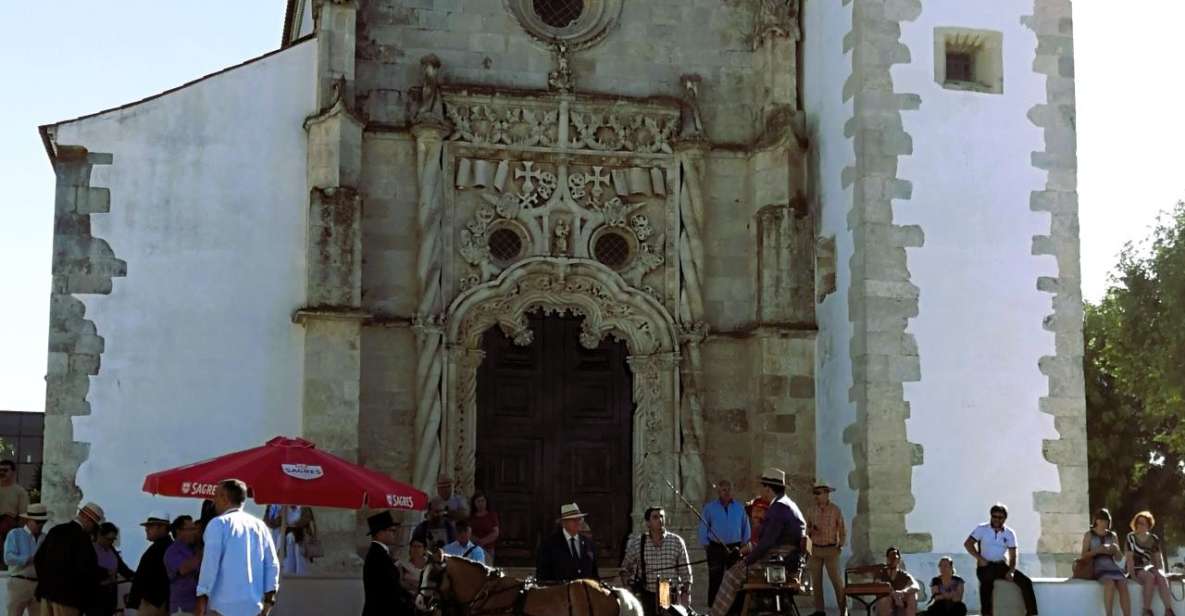
- Tagus River witnessed historical shifts and empires, symbolizing Portugal’s rich history.
- Agricultural production along Tagus River emphasizes sustainable practices and adapts to market trends.
- Golegã’s equestrian heritage showcases Lusitano Horse Festival, preserving rich horse breeding traditions.
- Culinary delights of Ribatejo reflect a rich heritage with traditional dishes like ‘Sopa da Pedra’.
Historical Significance of Tagus River
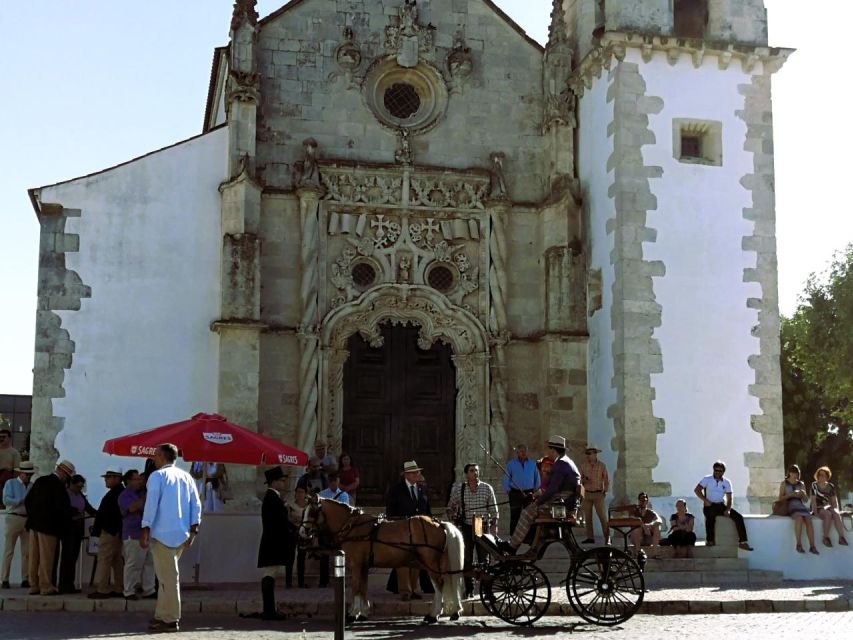
Flowing majestically through Portugal, the Tagus River holds a rich historical significance that has shaped the landscapes and cultures along its banks for centuries.
One key event tied to the Tagus River is the Republic Proclamation, which took place on October 5, 1910. This momentous event marked the end of the monarchy in Portugal and the hotel of the First Portuguese Republic.
The Tagus River served as a witness to this historic transition, symbolizing the country’s shift towards a more democratic form of governance. The river’s waters have seen the rise and fall of empires, the birth of new political eras, and the daily lives of countless communities that have thrived along its shores, making it a living testament to Portugal’s rich history.
Olive Oil and Wine Production
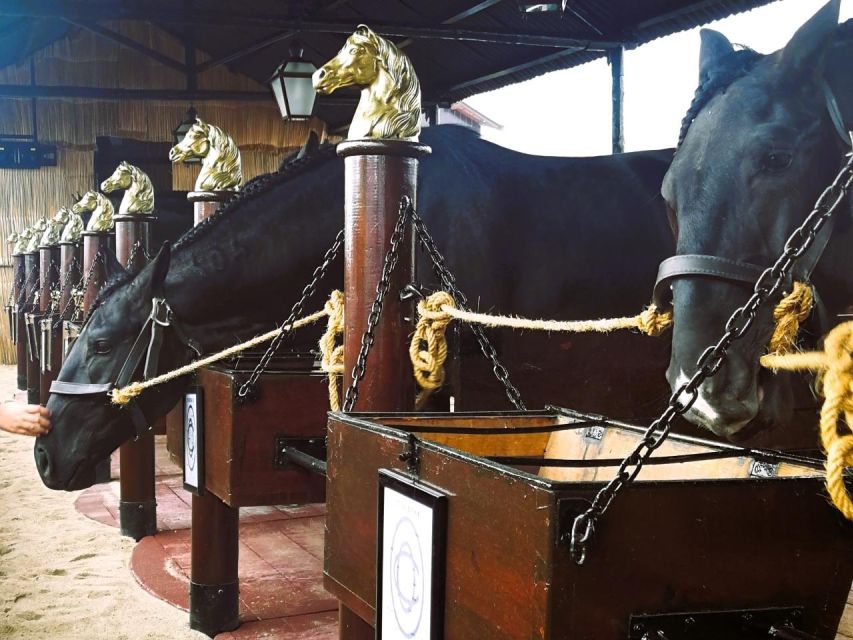
Nestled in the fertile lands along the Tagus River, the region boasts a long-standing tradition of producing exceptional olive oil and wine. Traditional techniques blend harmoniously with modern innovations, creating a unique blend of flavors that reflect the area’s rich cultural influences.
Sustainable practices are paramount in the production process, ensuring the preservation of the land for future generations. From the groves to the vineyards, each step in the process showcases the dedication to quality and respect for the environment.
Market trends continually shape the industry, pushing producers to adapt while maintaining the essence of their craft. Tasting experiences offer a journey through the regional variations, allowing enthusiasts to savor the distinct characteristics of each olive oil and wine produced in this vibrant region.
Equestrian Heritage in Golegã
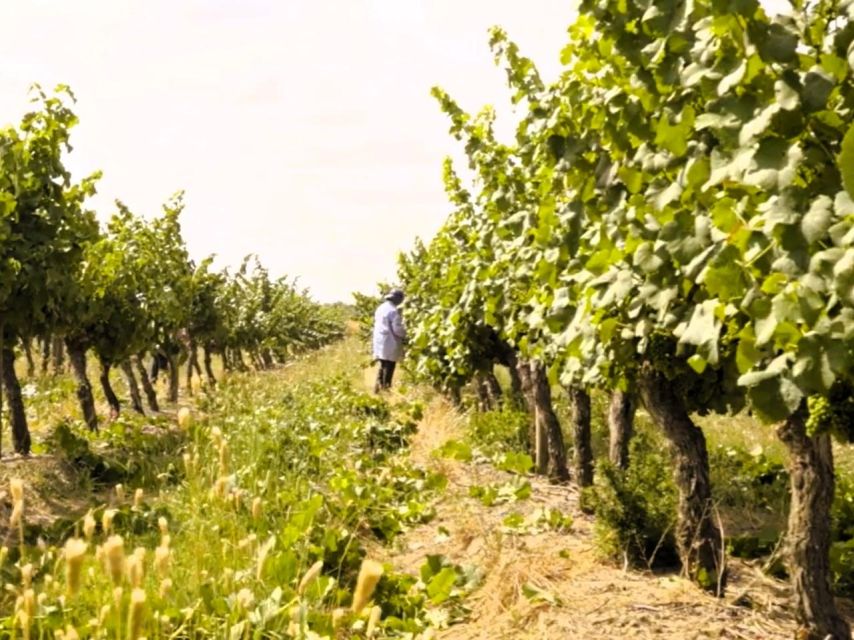
The equestrian heritage in Golegã paints a vivid picture of a community deeply intertwined with the noble traditions of horsemanship and celebration. Golegã, known as the "Capital of the Horse" in Portugal, boasts a rich history of horse breeding and cultural traditions that date back centuries. The annual Lusitano Horse Festival, a highlight of Golegã’s calendar, brings together horse enthusiasts from around the world to celebrate the beauty and grace of these magnificent animals. The festival is a vibrant showcase of equestrian skills, traditional costumes, and lively music, offering visitors a unique insight into the region’s deep-rooted love for horses. The equestrian legacy in Golegã continues to thrive, preserving its heritage for generations to come.
| Tradition | Description | Importance |
|---|---|---|
| Lusitano Horse Fest | Celebrates horse culture | Cultural celebration |
| Horse Breeding | Focus on breeding quality horses | Preservation of breeds |
| Traditional Attire | Colorful costumes for riders | Cultural identity |
Exploring Casa Dos Patudos
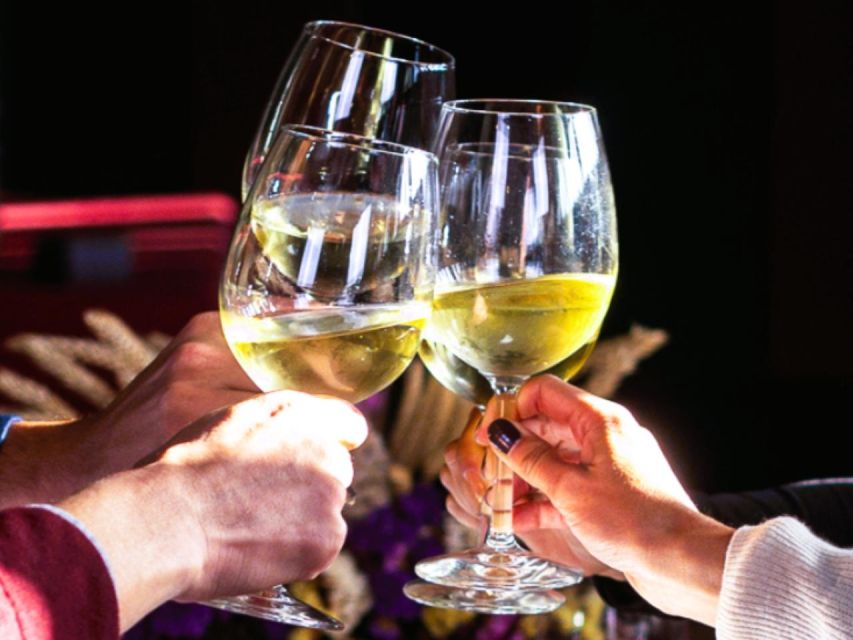
Upon entering Casa Dos Patudos, visitors are immediately enveloped in the opulent ambiance of a bygone era, where the echoes of aristocratic living resonate through its grand halls and ornate furnishings.
-
Artistic Treasures: The mansion houses a remarkable collection of paintings, sculptures, and decorative arts from various periods, offering a glimpse into the artistic tastes of its former inhabitants.
-
Architectural Marvels: The architectural splendor of Casa Dos Patudos is evident in its intricate detailing, impressive facades, and well-manicured gardens, showcasing the grandeur of the estate.
-
Historical Significance: This mansion holds a rich history that reflects the cultural heritage of the region, providing insights into the lifestyle of the Portuguese elite.
-
Guided Tours: Visitors can delve deeper into the history and significance of Casa Dos Patudos through informative guided tours led by knowledgeable experts, enhancing the overall experience.
Culinary Delights of Ribatejo
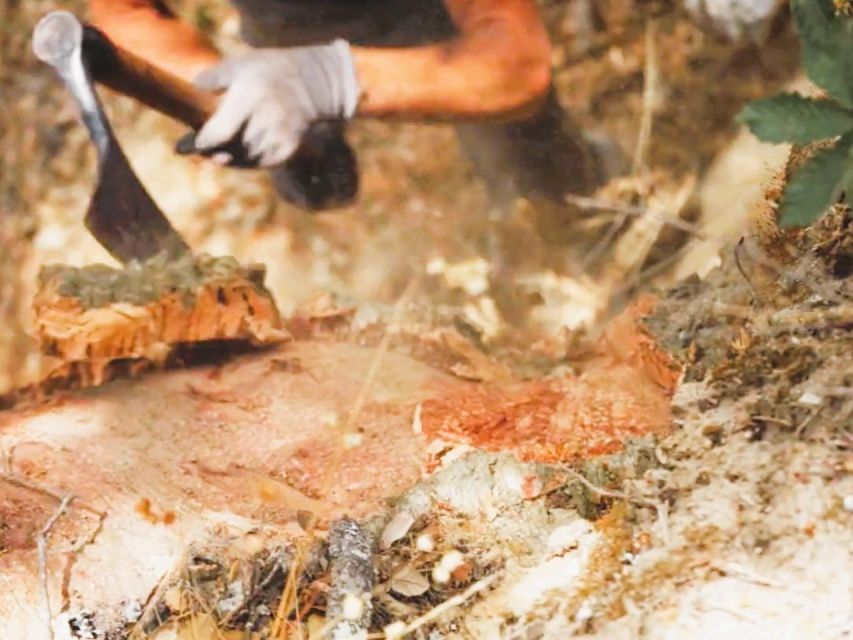
Indulge in the rich culinary heritage of Ribatejo through a tantalizing array of traditional dishes and flavors that showcase the region’s gastronomic prowess. Ribatejo offers a delightful culinary experience, where traditional recipes are celebrated and passed down through generations.
The local markets in Ribatejo are a treasure trove of fresh ingredients, from succulent meats to flavorful cheeses and aromatic spices, all essential for creating the region’s signature dishes. Visitors can savor mouthwatering specialties like ‘Sopa da Pedra’ (Stone Soup), ‘Ensopado de Borrego‘ (Lamb Stew), and ‘Toucinho do Céu’ (Heaven’s Bacon).
These dishes not only satisfy the palate but also provide a glimpse into the cultural richness of Ribatejo. Enjoy the flavors of Ribatejo and discover the culinary delights that make this region a true culinary gem.
Common questions
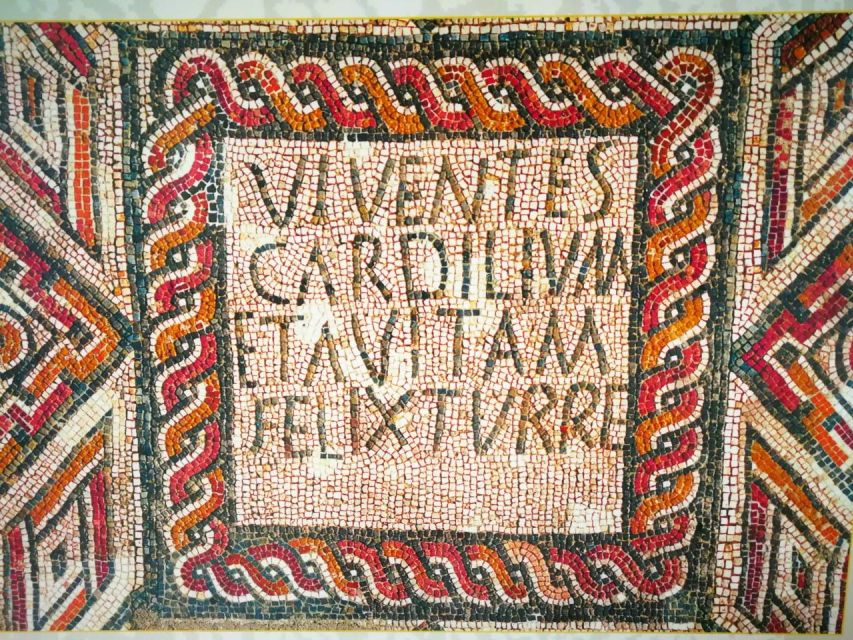
Can Visitors Participate in Any Hands-On Activities Related to Olive Oil and Wine Production During the Tour?
Visitors can engage in interactive workshops and tasting sessions related to olive oil and wine production during the tour. These hands-on activities offer a unique opportunity to learn about and experience the local agricultural traditions firsthand.
Are There Any Specific Rules or Etiquette to Follow When Interacting With the Lusitano Horses at the Golegã Village?
When interacting with Lusitano horses in Golegã village, visitors should approach gently and follow local guides’ instructions. Respect these majestic animals. Enjoy Ribatejo specialties and traditional dishes after meeting these elegant creatures.
Is There a Dress Code Recommended for Visiting Casa Dos Patudos and Other Historical Sites on the Tour?
When visiting Casa dos Patudos and historical sites on the tour, there’s no strict dress code, but modest attire is recommended to respect cultural traditions. Wear comfortable shoes for exploring, and consider dressing elegantly for the occasion.
Are There Any Traditional Dishes or Specialties From Ribatejo That Visitors Should Not Miss Trying During Their Culinary Experience?
Visitors exploring Ribatejo’s culinary scene must not miss traditional dishes like sopa da pedra, ensopado de borrego, and leitão à bairrada. These culinary experiences offer a taste of the region’s rich gastronomic heritage.
How Far in Advance Should Reservations Be Made for the Full-Day Private Tour to Ribatejo From Lisbon?
Reservations for the full-day private tour to Ribatejo from Lisbon should ideally be made at least 2 weeks in advance. The tour highlights include wine and olive oil tastings, exploring historical sites, enjoying local cuisine, and experiencing an equestrian atmosphere.
Final Words
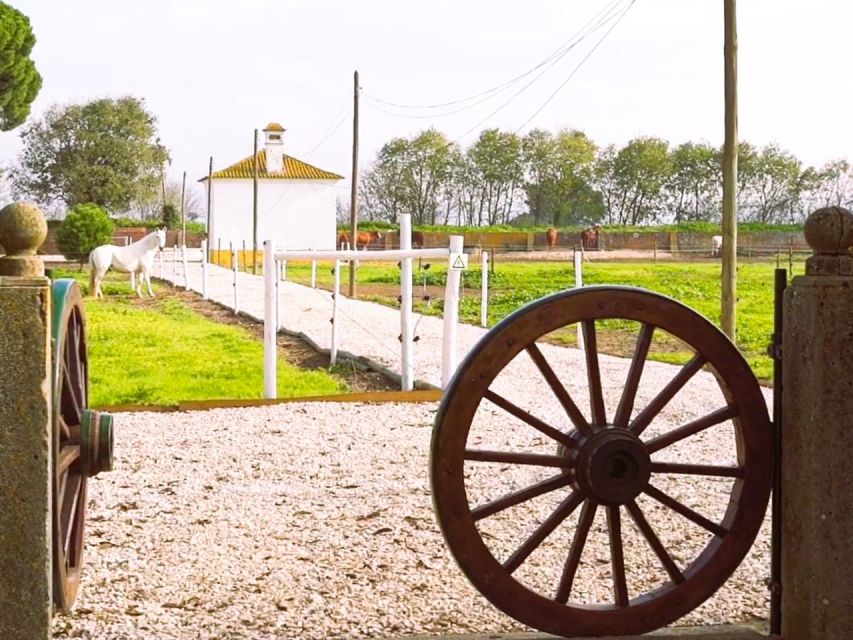
Set out on a journey through Portugal’s enchanting Tagus River region, where history, culture, and gastronomy blend effortlessly. From olive oil and wine production to equestrian heritage in Golegã, Casa dos Patudos, and the culinary delights of Ribatejo, this private group tour offers a unique and immersive experience.
Explore Portuguese identity, savor local wines and olive oils, and witness the vibrant Lusitano Horse Festival. Explore the essence of this timeless region with expert guides fluent in English, Portuguese, and Spanish.
